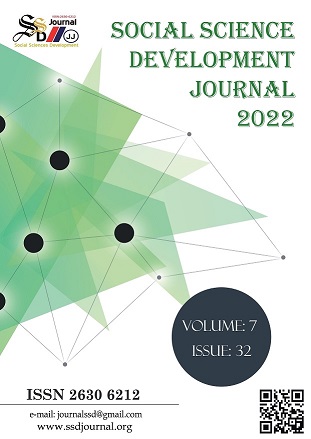ANALYSIS OF THE PROBLEM OF FREELOADING IN THE CONTEXT OF BEHAVIORAL ECONOMICS: THE CASE OF GAZIANTEP
DOI:
https://doi.org/10.31567/ssd.649Keywords:
Behavioral Economics, Free-riding Problem, Rationality, Bounded Rationality, AltruismAbstract
Economics is a significant field of science that guides us in every aspect of our lives. As in many
other fields, the science of economics has also advanced over time and has hosted a variety of
perspectives. This is especially due to the technological progress in the post-World War II era
together with the cognitive revolution, a substantial change that was experienced in economics. This
change emerged as a new field in economics called ‘Behavioral Economics’. Behavioral economics
made it possible to evaluate economics alongside psychology and re-examine the conventional
assumptions in economics. Along with behavioral economics, axioms have been reached such that
an individual does not always make rational decisions, decisions are not always based on complete
information and emotions can influence the decisions taken. Simultaneously the rational behavioral
problem of free-riding of public goods is also discussed. It’s analyzed from the perspective of
behavioral economics, when individuals display this behavior and when they don’t. For this thesis,
a survey was conducted with the residents in the district Şahinbey in Gaziantep province. Statistical
analysis of the data obtained from the survey confirms the assumptions put forward by behavioral
economics.




